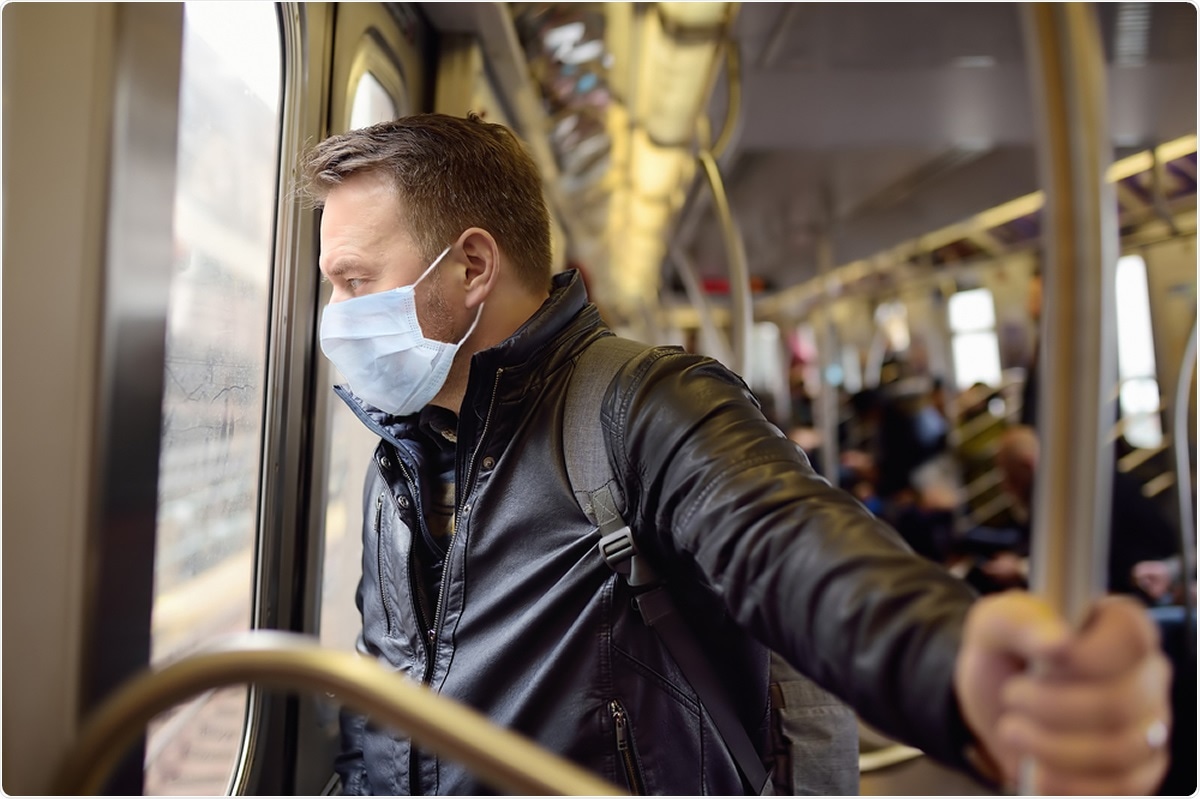The COVID-19 pandemic caused by severe acute respiratory syndrome coronavirus 2 (SARS-CoV-2) has infected over 40 million people worldwide and claimed over a million lives. By the 11th of March 2020, nearly all nations were affected, and the World Health Organization (WHO) declared a pandemic. In the United States alone, the virus has infected over eight million and claimed the lives of over 220,000.

Image Credit: Maria Sbytova / Shutterstock
Non-pharmacological measures of prevention
SARS CoV-2 is highly infectious and spreads rapidly from person to person. There are currently no specific antiviral drugs that effectively fight the virus and no vaccines to prevent infection.
Non-pharmacological interventions (NPIs) are all that's available to slow the viral spread. NPIs that have been advised by leading health organizations including the WHO and the CDC include;
- Physical distancing of 6 feet or more and avoidance of gatherings and staying indoors
- Usage of appropriate masks or face coverings that cover the mouth and nose.
- Refraining from touching the face, eyes, nose, etc.
- Hand hygiene that includes washing hands with soap and water for at least 20 to 30 seconds or using an alcohol-based hand sanitizer.
Updates on 19th of October from CDC
The Center for Disease Control and Prevention (CDC) has issued many health warnings regarding the pandemic. On the 19th of October, the CDC updated its guidelines for COVID-19. These updates focus on the prevention of the spread of the infection during travel. Since the onset of the pandemic, international and intra-state travel has been restricted across many nations. With the slow reversal of strictures and bans, travel is resuming with caution. These new guidelines thus focus on ways to make travel safe during the pandemic. The advisory is mostly related to effective mask use during travel.
The CDC website says, "transmission of the virus through travel has led to—and continues to lead to—interstate and international spread of the virus." It continues, "local transmission can grow quickly into interstate and international transmission when infected persons travel on public conveyances without wearing a mask and with others who are not wearing masks."
The advisory states that there are seven places where appropriate masks must be worn.
- On airplanes – The CDC advises that all air travelers must wear an adequate face mask at all times. This is also a mandatory requirement by almost all airlines. CDC says that while passing through the airport, all should wear masks.
- On trains – Travelling via trains raises the risk of getting infected with the coronavirus because there is inevitable proximity with other passengers for an extended period.
- Subways – the lack of ventilation on subways raises the risk of infection from one person to another, especially in underground stations. Crowding also facilitates the spread of the infection. The CDC urges passengers to choose coaches with less crowding and also avoid touching high-contact surfaces. Hand sanitizers and appropriate hand hygiene is another essential aspect of travel, says the CDC.
- Buses – Although buses have fresher circulated air, which decreases the risk of coronavirus transmission compared to subways, it is still possible to become infected while traveling on buses. Short rides or longer bus trips on coaches both should be undertaken wearing masks, says the CDC.
- Taxis and cabs – Taxis and cabs require touching high contact surfaces and putting the rider in close proximity with the driver. The enclosed interiors of the car also raise the risk of coronavirus transmission. Thus those riding cabs need to mask up, says the CDC.
- Rideshare vehicles – Sharing a public transport cab or ride-sharing vehicle such as Uber and Lyft with another passenger mandates the use of a facemask to prevent the infection spread, says the CDC.
- Ships and ferries – Decks are open and well ventilated. However, the risk of crowding and traveling with an infected person remains, and thus all riders need to mask up, says the CDC.
The CDC says on its website, "Broad and routine utilization of masks on our transportation systems will protect Americans and provide confidence that we can once again travel more safely even during this pandemic."
The CDC said transport operators need to ensure that all travelers and employees wear masks "for the duration of travel." They need to provide masks to passengers not wearing them. Operators could exempt children below the age of two or persons who have written instruction from a healthcare provider.
The U.S. Travel Association, in response to the CDC mandate, says, "There simply cannot be an economic and jobs recovery unless travel is able to broadly resume, and the universal embrace of mask-wearing and other hygiene measures is the thing that is going to enable that to happen."
Source:
- Effective immediately, CDC is strongly recommending that masks are worn by all passengers on and operators of public transportation conveyances to prevent spread of the virus that causes COVID-19. URL: https://www.cdc.gov/